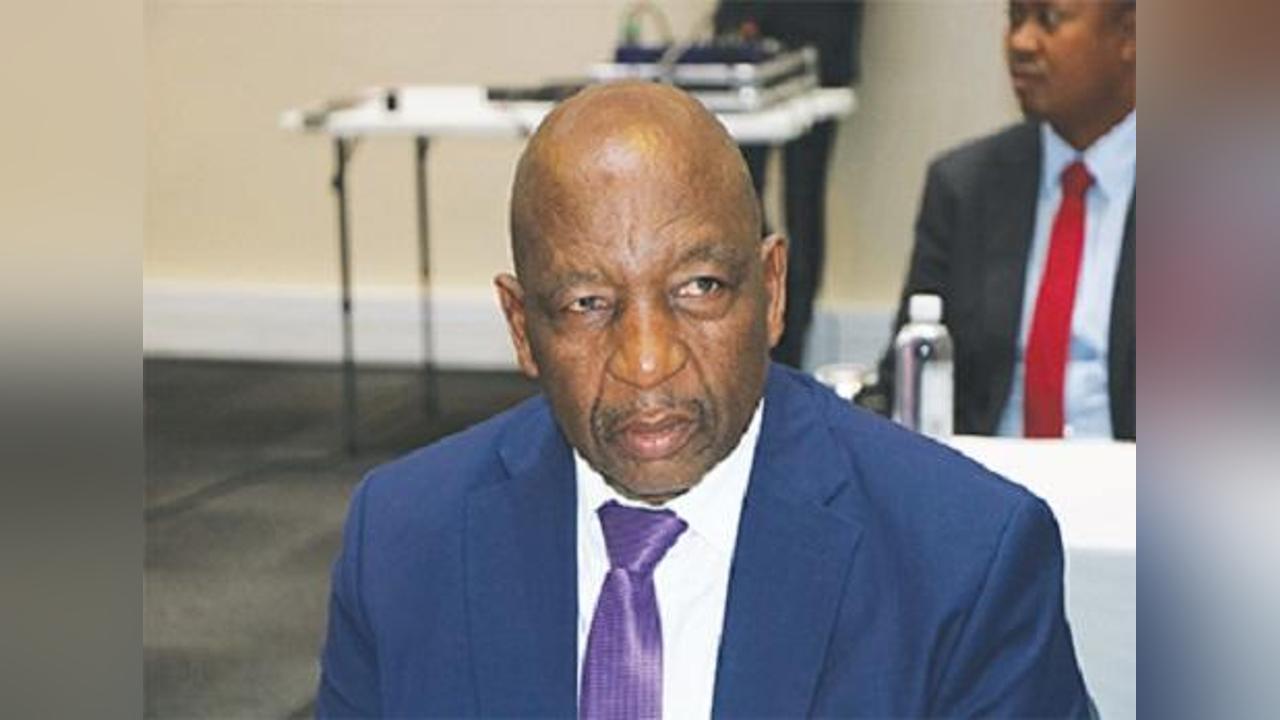Africa-Press – Lesotho. The Right Honourable Prime Minister Samuel Ntsokoane Matekane in his continued effort to bolster agriculture and eradicate poverty in the country recently donated food and seed packages to residents of Morija.
The donation was made to over two hundred families which are part of over five hundred thousand households identified as being disadvantaged in dire need of assistance.
The handing over ceremony was facilitated in collaboration with the Disaster Management Authority (DMA) and the Citizen Feedback Mechanism (CFM). Speaking at the handing over ceremony, The RT.
Hon. Prime Minister Samuel Ntsokoane Matekane said every year the DMA conducts research to determine Lesotho’s status regarding food security. He said in the current and last financial year it was discovered that a large number of people were living below the poverty line and were without food.
“In the last financial year it was discovered that 521,000 Basotho were vulnerable and without Sufficient supplies of food, while in the current year 581,000 Basotho were found to be in the same crisis.
It is through this background that the government decided to purchase seeds and food in order to assist those in need,” he said. The Prime Minister also thanked the Government of China and the world Food Programme (WFP) for their support in this initiative.
“We thank our Friends the Government of the Peoples Republic of China for donating bags of rice weighing about 702 metric tons and grain of 351 metric tons.
We also thank the WFP for purchasing locally produced corn and beans assisting in the grinding of the corn and packaging of the beans. Ambassador of the Peoples Republic of China to Lesotho, H.
E Li khezhong said his country was always determined to help where it could so that Lesotho can develop in all spheres. He said it was evident with the donations that China made in the past that that two states continued to enjoy cordial relations as it had always been.
“China has always been working hand in hand with Basotho. In the past four years since my arrival in Lesotho I have already handed over five batches of food aid to the government,” he said.
Mrs ‘Mat’sepo Moshabesha who is one of the beneficiaries said she constantly lived in poverty and didn’t even know what she would give to her children when they complained of hunger. She said her home was also in a dilapidated state as water usually leaked through the roof during heavy rains.
“We usually stayed with our children with nothing to eat in our homes, even our homes are in bad condition, always flooded during the rainy season and we would constantly ask the question of where we would go in case of heavy hail storms,” she said.
In a subsequent address Matsieng Legislator Hon. Moshe Makotoko said a lot of people in Lesotho were living in extreme poverty and wished that all the supplies would reach all the intended people in need.
“To all those who have received something today please be compassionate with your neighbours.
To all those who are not beneficiaries also don’t be dishearten because tomorrow it will be you, we have to learn to be kind and share with one another because we face these challenges of food insecurity together.
With The Kingdom of Lesotho being a landlocked country within South Africa, and as a lower-middle-income country with a population of 2 million with a land mass of 30,555 km sq.
Lesotho has high levels of income inequality, with almost half its population living in poverty, and a quarter in extreme poverty. According to the World Food Programme (WFP) Food insecurity remains a chronic challenge, hindering the country’s development and progress towards zero hunger.
Despite some economic growth, Lesotho has been unable to address rural poverty and promote inclusive social development. Over a quarter of the population faces high levels of acute food insecurity and requires humanitarian action to reduce food gaps, protect and restore livelihoods, and prevent acute malnutrition.
Lesotho struggles with chronic malnutrition, particularly among children aged 2-3, with stunting (impaired growth due to malnutrition) rates at 34.5 percent.
Micronutrient deficiencies (mainly iron and vitamin A) also remain a challenge, affecting more than half of children under 5. Almost half of children between 6 and 59 months suffer from iron deficiency anaemia.
This can result in stunted development, which may become irreversible without iron supplements. The economy relies heavily on agriculture, which serves as the primary income source for people in rural areas.
Approximately 80 percent of the rural population are subsistence farmers relying on less than 10 percent of arable land, which creates a high dependency on food imports.
The country is prone to disease outbreaks and disasters, particularly floods, heavy rains and drought. These events significantly affect farmers by altering the growing season and reducing agricultural production.
The COVID-19 pandemic, the economic impact of the conflict in Ukraine and recent heavy rains has posed challenges including increased urban and rural unemployment.
This has reduced remittances, adversely affected food availability and prices, and damaged the purchasing power of poor households. As a result, vulnerable households have been pushed further into poverty.
Poor households have little resilience against economic shocks and lack savings or access to credit – trapping them in a cycle of low investments, productivity and income.
For More News And Analysis About Lesotho Follow Africa-Press




![THE RULING PARTY [RFP] LAUNCHED FIRST DIASPORA COMMITTEE THE RULING PARTY [RFP] LAUNCHED FIRST DIASPORA COMMITTEE](https://static.africa-press.net/lesotho/sites/62/2026/02/sm_1771878934.036281-218x150.jpg)

